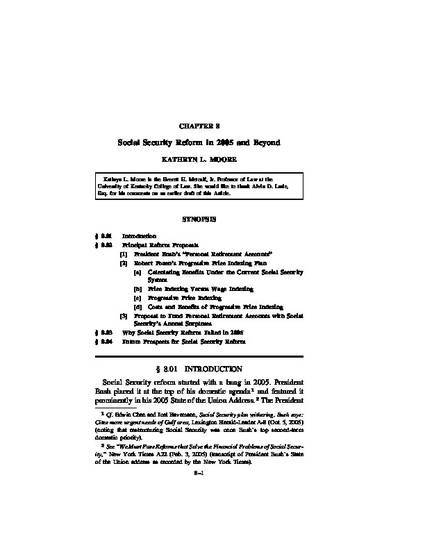
Social Security reform started with a bang in 2005. President Bush placed it at the top of his domestic agenda and featured it prominently in his 2005 State of the Union Address. The President spent the early months of the year on a "60-day, 60 city tour" of the country touting his pet project, amending Social Security to create "personal retirement accounts." Indeed, there was so much activity in the arena that the BNA Pension and Benefits Reporter frequently devoted a separate section to Social Security news in 2005.
Despite its early prominence, Social Security reform ended with a whimper by the end of 2005. By October, President Bush acknowledged at a news conference that his proposed Social Security overhaul was going nowhere. "There seems to be a diminished appetite in the short term, but I'm going to remind people that there is a long-term issue that we must solve, he said.
What happened to this hot button issue in 2005? This Article begins by describing and analyzing three of the most politically salient reform proposals in 2005. It then explains why Social Security reform failed despite President Bush's Herculean effort to partially privatize the system. Finally, it concludes by discussing the prospects for reform in 2006 and beyond.
